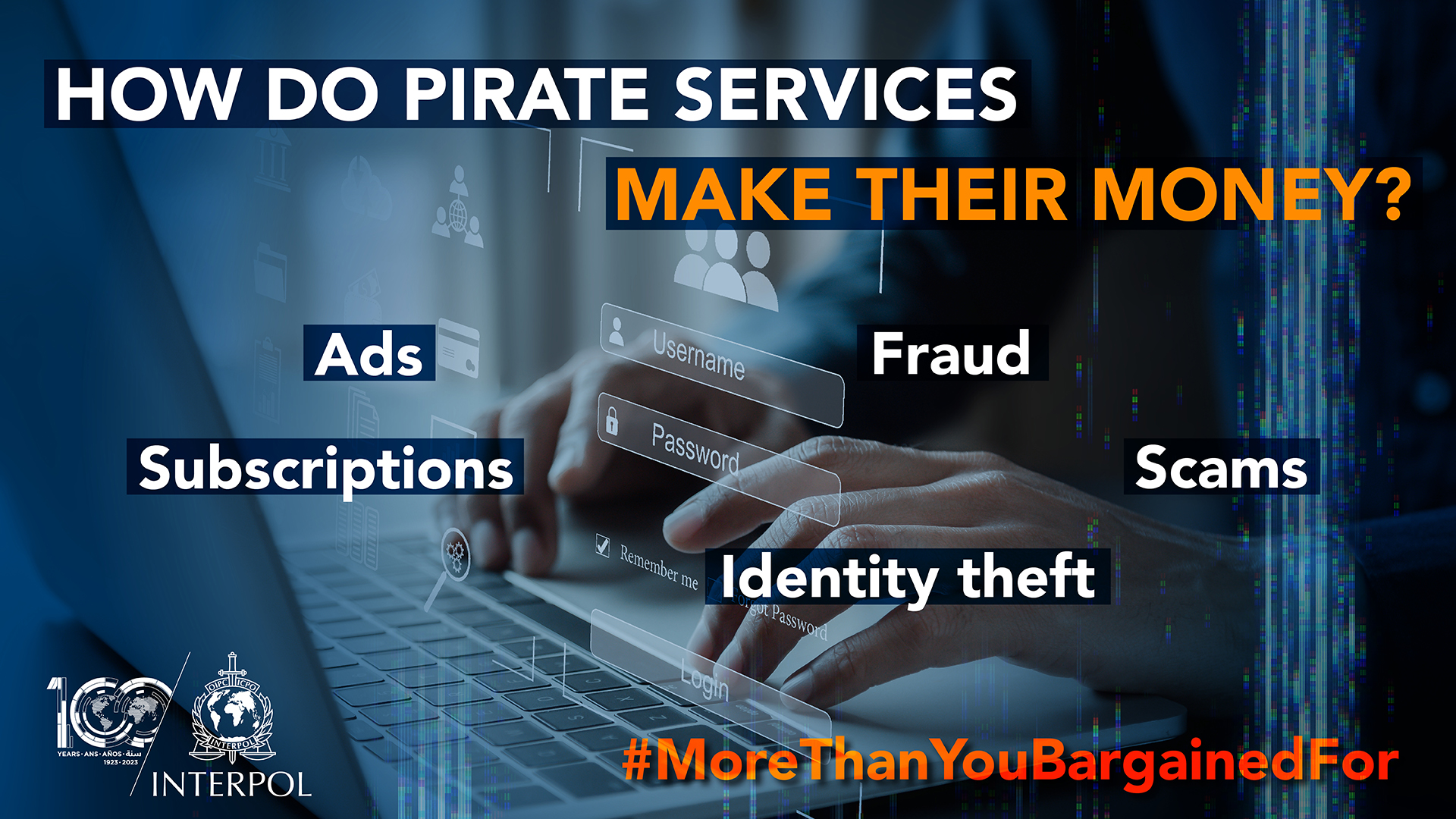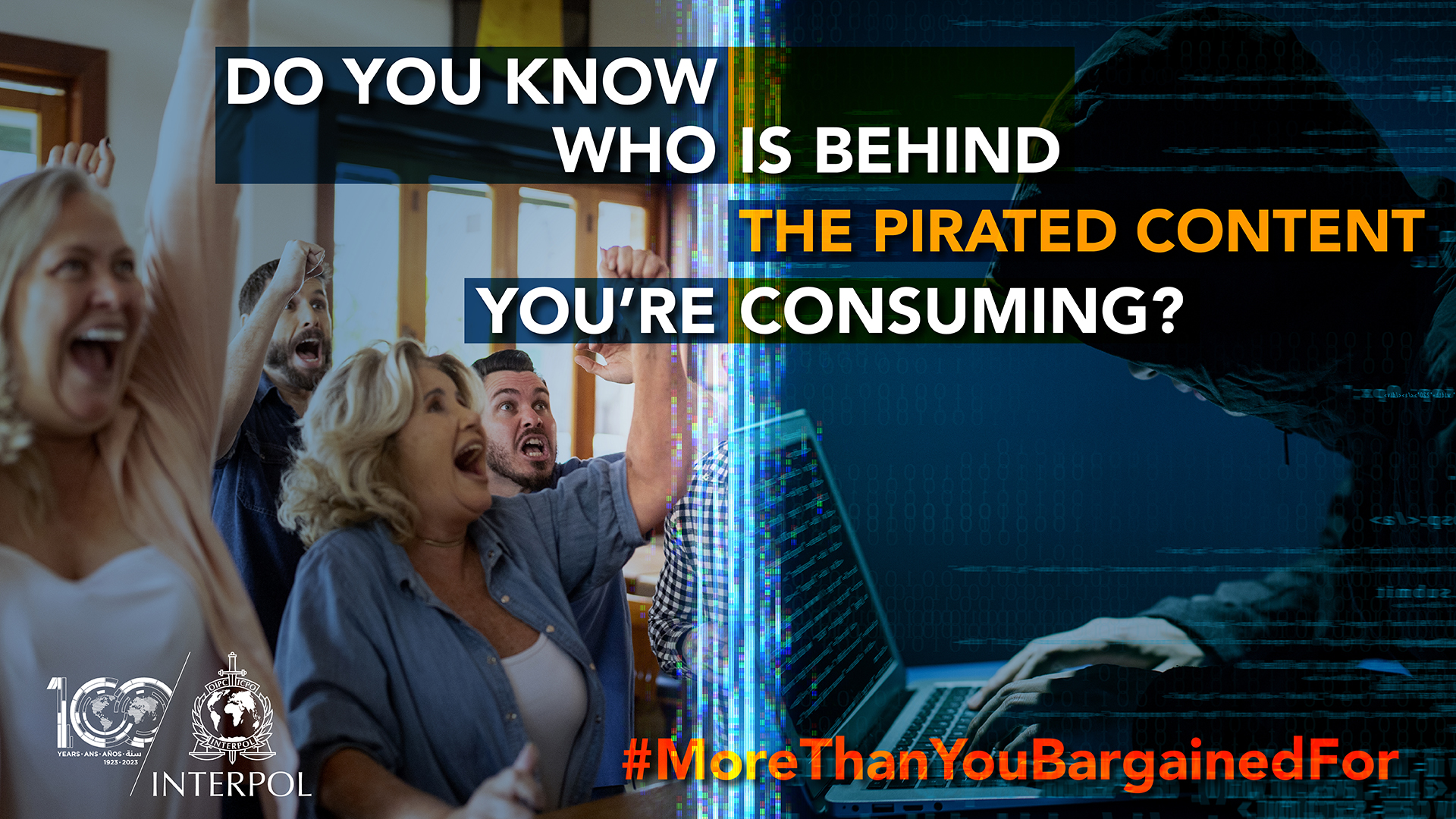Digital piracy refers to the illegal copying or distribution of copyrighted material via the Internet. It negatively affects the creative industries, including film, TV, publishing, music and gaming.
Online piracy has an economic impact, as it affects government revenue streams and puts you – the consumer – at risk of financial loss. It also opens up security risks to consumers such as ID theft or exposing children to inappropriate content.
Pirate operator sites offer access to audiovisual content that has been stolen from a legitimate TV operator. This can be accessed via illicit devices or apps. Legal devices such as smart TVs, smartphones, and tablets may also carry illicit apps.
A profitable crime
Piracy services generate revenue through various means, including:
- Advertising: These sites may receive payment from advertisers based on the number of impressions or clicks.
- Donations: Some piracy services may ask users to donate money in exchange for access to premium content or to support their site.
- Subscription services: Users may be able to access high-quality versions of pirated content or gain access to “premium” content in exchange for a subscription fee.
- Selling user data: Some piracy services may sell user data, such as browsing history or personal information, to third-party companies.
- Affiliate marketing: Piracy services may generate revenue by referring users to the sites or products from online retailers.
Buying your content from these sites deprives the creative industries, pay TV companies and tax authorities of revenues to which they are legitimately entitled. Every year, their losses run into the billions of every year – meaning that less is spent on creating new content and jobs in the industry.

More than you bargained for
The advertised payment methods are often not what they seem, with your money being diverted to pirates’ bank accounts using sophisticated money laundering techniques. Do you really want them to have your credit card details?
You could find that you suddenly stop receiving the service. Pay TV companies, rights holders and their technology providers devote substantial resources to disrupting pirate services. And anti-piracy associations work with payment providers to interrupt the flow of money to the pirates. When they shut down the pirate services, you can access no content and have no way of getting your money back.
Finally, downloading or distributing copyrighted material without permission can result in legal action, which can lead to fines or even prison time.

Cyber-security risks
Research has shown that pirate sites present a distinct security risk for consumers.
Malware
Many websites and peer-to-peer networks that offer pirated material may contain malware or viruses, which can harm the user's device or steal personal information. This malware can also spread in parallel within a home or corporate network, potentially affecting critical business operations, or used as the launchpad for identity theft and identity fraud. Consumers are also at legal risk from signing up to proxy servers which may have allegedly had been used to participate in DDoS and other attacks in the past.
Other risks include:
- Pirated contents used as traps to steal personal data, bank information or other sensitive information.
- Unsafe payment methods, which can lead to credit card fraud or other financial scams.
- Software updates (or lack of them) for products obtained through piracy can result in security vulnerabilities and other problems.
Always ensure your network and devices are protected by up-to-date antivirus and firewall software, and that your software and operating systems are regularly updated with the latest security patches.

How to spot a pirate site
How do you identify a pirate service? Be wary of any site offering a huge amount of content for a low price (or for free).
Many content providers offer only their own packages in the territories for which they have rights. So go to the company’s website and see what you can buy legitimately.
Check the prices as well – legitimate content will usually be more expensive than a pirate service, but you receive a quality, reliable service with good customer service to support you if you have problems.
Links to other crimes
You may wonder, what’s the harm in this? No one gets hurt. But the criminals behind these pirate sites can be part of organized crime groups. They can use the proceeds to fund other illegal activities, such as illegal online gambling, online sexual exploitation, drug trafficking, human trafficking, arms smuggling, and money laundering.
Therefore, by using that cheap service or bargain device, you could be contributing to a range of crimes you could not imagine.
Criminal organizations use anonymous payment methods and complex distribution networks to conceal their identities and activities. This can make it difficult for law enforcement agencies to identify and prosecute them.
Law enforcement agencies around the world continue to work with the private sector to raise awareness of the harm caused by piracy and the importance of respecting intellectual property rights.
Don’t contribute to organized crime. Help fight piracy by obtaining your content legally.

Related documents

Related news

Global illicit medicines targeted by INTERPOL operation
31 October 2023






